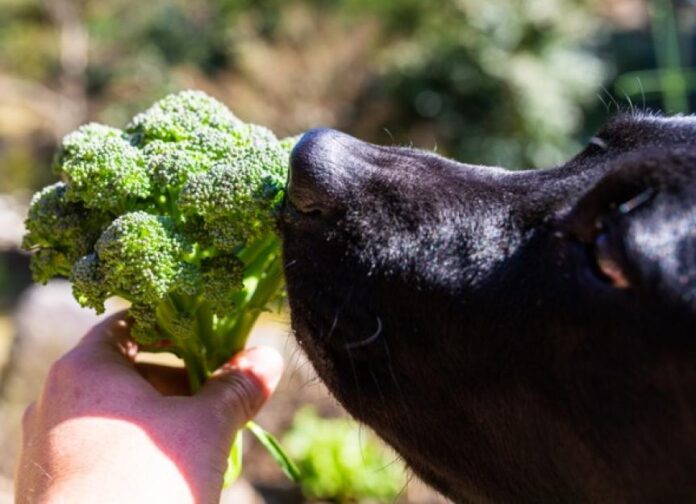Can Dogs Eat Broccoli? A Comprehensive Guide
Note: Always consult with your veterinarian before introducing any new foods into your dog’s diet, especially human foods. What may be suitable for one dog might not be safe for another, depending on various factors such as age, health, and existing diets. Dogs on prescription diets should not receive any treats outside their prescribed meals.
Is Broccoli Safe and Beneficial for Dogs?
Yes, adult dogs can safely consume broccoli, which is not toxic and offers numerous health benefits when served in moderation. As a nutrient-rich vegetable, broccoli provides important vitamins and minerals, including:
- Vitamin C
- Vitamin K
- Folic Acid
- Magnesium
- Sodium
- Potassium
- Chromium
Despite its benefits, broccoli should not be the sole source of nutrition for dogs, and overfeeding can lead to intestinal upset.
Can Puppies Eat Broccoli?
Puppies have different dietary needs compared to adult dogs. Given their undeveloped digestive systems, the high fiber content in broccoli may cause digestive issues. It’s best to avoid feeding broccoli to puppies.
Raw vs. Cooked Broccoli: What’s Best for Your Dog?
Feeding Raw Broccoli
Dogs can eat raw broccoli florets, provided they are thoroughly washed and cut into small pieces to prevent choking. Raw broccoli preserves the most nutrients compared to cooked varieties.
Feeding Cooked or Steamed Broccoli
Cooked and steamed broccoli is also safe for dogs. Brief steaming helps retain nutrients better than prolonged cooking. Ensure the broccoli is cooled down before serving and avoid adding ingredients such as butter or seasonings that may be harmful to your dog.
What About Broccoli Stems?
While broccoli stems are not toxic, they can pose a choking hazard or risk of intestinal blockage. If offering stems to your dog, make sure to cut them into small, manageable pieces. Always monitor your dog and consult a veterinarian if choking occurs.
Can Dogs Have Allergic Reactions to Broccoli?
Allergic reactions in dogs can arise from repeated exposure to particular foods. Symptoms of food allergies typically include skin issues, rashes, and ear infections. If broccoli is introduced for the first time, watch for signs of intolerance, such as vomiting or diarrhea.
Does Broccoli Cause Gas in Dogs?
Yes, broccoli can lead to gas in dogs. Its high fiber content, along with the presence of the organic compound isothiocyanate, can cause gastric irritation, resulting in flatulence. Moderate consumption is key to preventing this issue.
How Much Broccoli Can You Feed Your Dog?
When it comes to portion sizes, moderation is crucial. Broccoli should constitute no more than 10% of your dog’s overall diet. Here are general guidelines based on your dog’s size:
- Extra-small dogs (2–20 pounds): 1-2 pieces (½-inch wide by ¼-inch thick)
- Small dogs (21–30 pounds): 3-4 pieces (1-inch wide by ¼-inch thick)
- Medium dogs (31–50 pounds): 5-6 pieces (1-inch wide by ¼-inch thick)
- Large dogs (51–90 pounds): Handful of broccoli pieces (1-inch wide by ¼-inch thick)
- Extra-large dogs (91+ pounds): Large handful of broccoli pieces (1-inch wide by ¼-inch thick)
If your dog consumes too much broccoli, be alert for symptoms of an upset stomach, such as decreased appetite, vomiting, and diarrhea. Contact your veterinarian if you notice unusual symptoms.
How to Prepare Broccoli for Your Dog
When ready to serve broccoli to your dog, follow these preparation methods:
Raw
Cut raw broccoli into small, bite-sized pieces to maximize nutrient retention.
Steamed
Steam broccoli for a few minutes, ensuring no seasonings are added before serving.
Cooked
While cooking may diminish some nutrients, dogs can still benefit from plain cooked broccoli.
Smoothie
Blend broccoli with dog-safe fruits like blueberries and bananas, and a scoop of plain yogurt for a nutritious treat. This can be served over their food or frozen as a fun snack.
For a happy and healthy pup, understanding how to appropriately incorporate broccoli into their diet is essential. Always prioritize moderation and consult your veterinarian for the best dietary advice.











